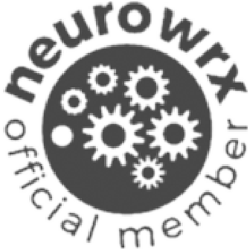Someone once taught me that when you rent a hotel room, you can get a first floor room with a view of a dumpster, or you can get a top floor room with a view of the ocean. Perspective is like that; you can look at something from one view where things look lousy. Yet if you change rooms, if you simply change where you’re looking from, the same view can be pleasant, even beautiful.
When it comes to the concept of “pathological demand avoidance” (PDA), I am no expert. I was surprised to learn of it because I’ve found that many people dislike being made demands of and never get labelled “pathological”.
Sometimes it seems like once a pathology is designated, other ones are quick to follow, simply because one is already being viewed through the lens of pathology (dumpster view). Whereas others who exhibit the same or similar qualities aren’t pathologized and are even lauded (ocean view).
If someone is part of a group that society has traditionally viewed as respectable, such as doctors, lawyers, etc. (let’s use “professionals” as a blanket term for now), they can exhibit the same qualities associated with Autism, and people tend to view them in a positive light.
However, if you are on the spectrum, it’s usually a different story (dumpster view). For example:
IF DESCRIBED AS | A “PROFESSIONAL” IS SEEN AS | A PERSON ON THE SPECTRUM IS VIEWED AS |
| Doesn’t like being told what to do. | Authoritative.
Alpha.
Commands respect. Someone you should trust. | Having pathological demand avoidance.
Noncompliant.
Overly controlling.
Overly autonomous.
Disordered. |
| Direct. | Powerful.
Means no harm. Straightforward.
Assertive. | Rude.
Lacks empathy and social awareness.
Difficulty with figurative language. |
| Not spending enough time with others. | Busy.
Important. | Socially awkward.
Avoidant.
Not desirous of human attachment. |
| Capable/smart. | Excellent.
(Or nothing is said because it’s a given.) | High functioning. |
| Emotional | Empathetic. | Overly sensitive. |
| Controlling. | Precise.
Attentive to detail.
Meticulous.
Has high standards.
Goal oriented.
Has leadership qualities. | Anxious.
Obsessive.
Manipulative.
Challenging.
Resistant.
Uncooperative.
Part of a developmental disorder. |
Of course this isn’t always, but generally speaking, there’s a bias.
I once worked with a respected licensed healthcare provider who expressed to me her opinion, that people in her profession don’t like being told what to do, apparently especially not by patients. In her profession, it’s okay, even positive, to be that way. They need to make their own decisions and be trusted.
Yet when this very quality is applied to someone on the spectrum, it’s another layer of disorder. For the record, if you’ve ever met a psychologist or psychiatrist who embraces being told what to do and being made demands of, I think you should start playing the lottery with those odds.
Here’s another ocean view to consider. Gandhi once said, “Any imposition of the will is an act of violence.” If you give this sentence space in your mind and heart, it’s an extraordinary statement. It rings true. Interesting to me that society at large is such that people who seek to control others aren’t pathologized, while those who don’t want to be controlled are.
Making demands of someone is imposing one’s will. And it’s rude. A lot of people are bothered by that, hence the “don’t should on me” movement. The old adage of saying “please” and “thank you”. It’s meant to convey respect. Barking orders at people or expecting unquestioned compliance aren’t respectful. Does anyone (perhaps outside the military) really like being told you “have to” do this or that, when someone is simply wanting you to do something? There’s no fun in that. Are we marginalizing individuals who need to be treated with respect?
There’s also the movement around changing “have to” to “get to”. For example, instead of saying, “I have to pick up my kid from school”, try changing it to “I get to pick up my kid from school.” There’s quite a difference in the energy between those statements.
Which brings me to my final ocean view to consider. In my opinion, individuals on the spectrum are often highly sensitive to and aware of energy, even if they don’t always know they are or how to modulate what they’re receiving. The energy of people, animals, places, vehicles, and words, for example.
It’s been said in the realm of energy psychology that to make demands of people, to try and control and dominate others, is a way of taking a person’s energy. In other words, it can be a type of energy vampirism. Perhaps without consciously knowing it, this is part of the objection to demands. As if to say, “No, stop siphoning off me. Get your own.” Or “Ask me nicely.” Or “Stop imposing your energy over mine.”
We have energy bodies, not just physical bodies. Imposing on either is a boundary violation. Instead of pathologizing, we could appreciate the awareness this brings.
The real questions to be asked are: How about we question the pathological demand for unchallenged compliance, and control over others? Why the perceptual bias? Why does Autism not get the ocean view?
For more neurodivergent-affirming content, visit my new Substack. Add your email address for a completely free subscription.





















